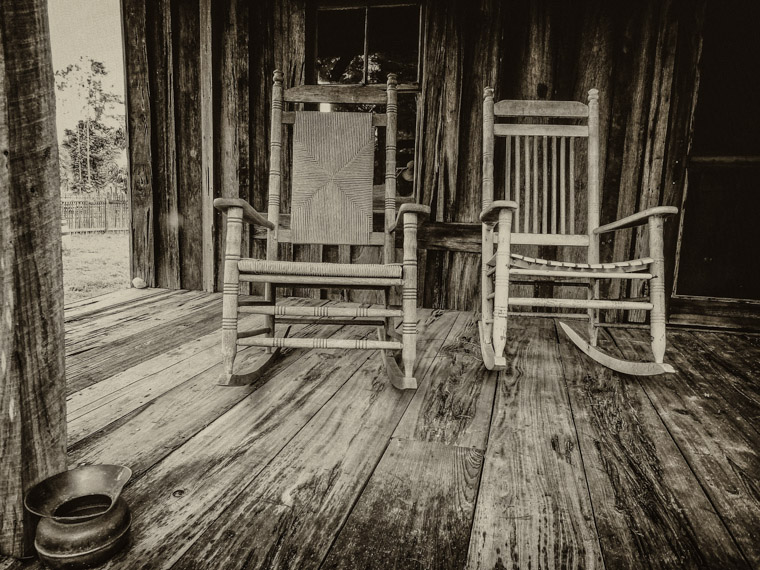Hidden Springs Lane, VA
In the spring of 2009, when the economic crisis of the previous year was continuing to unfold, a group of academics and other writers joined forces to form the Front Porch Republic website. At that time, I described the situation in the following terms:
Here we can see the curious state of affairs in our waning republic: Democrats tend to be suspicious of big business but they trust big government to rein in abuses; Republicans express suspicion of big government but trust economic centralization to solve market instability. Both are half right but half blind. Here is a principle that we would do well to grasp: concentrations of power in any form are a threat to liberty. It may be too late for this generation to see this vital truth or,if seeing, to do anything about it. But nothing is inevitable, and there are hopeful signs that people are beginning to think seriously about the importance of localism, human scale, limits, and stewardship, the very things woefully lacking in the current spending orgy. While a return to these ideals is still only in its infancy, change is afoot. This represents a glimmer of sanity in a world succumbing to the apparent security promised by centralization.
Nevertheless, we are facing the specter of a strange new phase in our nation’s history. Through massive spending we are embarking on an age of concentration, an age where economic and political power are not only allied but centralized, an age where the two will become increasingly intertwined and difficult to distinguish. The long courtship is over. The ill-starred marriage has been consummated. The Wall-Street bailout and stimulus package are the grotesque progeny of this unholy union.
Although FPR launched in March 2009, the seeds of the project had been germinating for some time. In 2007, Jeremy Beer, then the editor-in-chief of ISI Books, organized a conference in Charolottesville, VA, titled “Liberty, Community, and Place in the American Tradition.” Speakers included Bill Kauffman and Jason Peters along with Dan McCarthy of The American Conservative and Jesse Walker of Reason. The conference also provided an opportunity for some future FPR writers to meet and discuss matters that would be of central concern to the FPR project.
For the academic year 2008-09, I was on sabbatical at Princeton University under the auspices of the James Madison Program. During the fall of 2008, as the country descended into economic uncertainty, I became increasingly frustrated by what was clearly an inadequate response to the crisis. I called Jeremy Beer, who had left ISI and co-founded American Philanthropic, to discuss the matter. We decided to establish an on-line magazine that would provide an outlet for writers whose ideas did not fit comfortably into the neat and inadequate Left/Right dichotomy or the blue-state/red-state opposition that characterizes so much political writing in America. Others quickly joined the enterprise. Patrick Deneen (then professor of Government at Georgetown, now at Notre Dame) was also on sabbatical in Princeton at the time. His office was just down the hall from mine. He immediately saw the merits of the project. Writers such as Bill Kauffman, Caleb Stegall, Katherine Dalton, Daniel Larison, and Rod Dreher, along with academics such as Jason Peters, James Matthew Wilson, Susan McWilliams, Allan Carlson, Mark Shiffman, Russell Arben Fox, quickly joined.
FPR sought to promote human-scale institutions and associations against a steady consolidation of political, economic, and cultural power. With the tagline “Place, Limits, Liberty,” FPR writers set out to articulate a critique of the current situation and to provide a theoretical alternative as well as provide practical examples of how this alternative could be implemented in particular settings. While no litmus test has ever existed, FPR writers are generally oriented by the broad tradition of Christian humanism and, in promoting the idea of human flourishing born of that vision of human affairs, they have promoted such ideals as political decentralization, economic localism, cultural regionalism, and the dignity of both individuals and local communities. Key thinkers that serve to inspire and inform many FPR writers include Wendell Berry, Christopher Lasch, E.F. Schumacher, Wilhelm Röpke, Russell Kirk, Hilaire Belloc, G.K. Chesterton, and Alexis de Tocqueville.
In the fall of 2011, FPR held the first of its annual conferences. The site was Mount St. Mary’s University in Emmitsburg, MD. About 150 people converged on the campus to hear a variety of FPR writers—including a keynote address by Bill Kauffman—and others discuss various aspects of human scale and the human good. At least half of the attendees were students from colleges and universities in the region. The success of the conference demonstrated that FPR’s appeal could support a successful conference. Since then we have held a conference each year at various venues across the country and have featured keynote addresses from such figures as Dana Gioia, James Howard Kunstler, and Wendell Berry.
When FPR began, “localism” as a movement was only in its infancy. Today localism is an idea with a wide array of adherents from academics to hipsters, from city planners to organic farmers. It is becoming increasingly clear that many people across the political spectrum have come to question the wisdom of centralization in all its many guises. While there are plenty of discrete reasons for hope, the conventional wisdom in so many quarters, especially among the “intellectual class,” is generally still in the direction of the centralized, super-sized, and homogenized.
Much progress has been made toward articulating this alternative to the left/right stalemate, but there is still much to be done. The rhetorical battle has been more successful than we had hoped. However, changing the actual economic, political, and cultural reality is a much longer process. FPR exists, in large part, to help readers see the possibility of a world where human affairs are conducted as if place really matters, where economic affairs are conceived as if limits really matter, and where political power is exercised as if liberty really matters.
By fostering a network of people pursuing these ideals together, it is my hope that we can more clearly and courageously embody the virtues of neighborliness and rootedness as we faithfully steward the good gifts we have been given in the communities to which we have been called.





